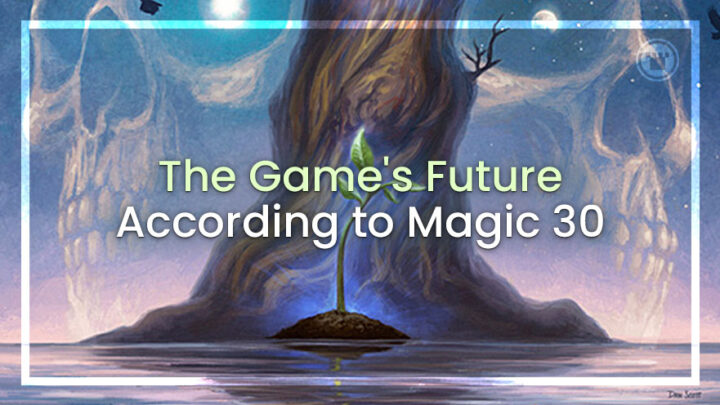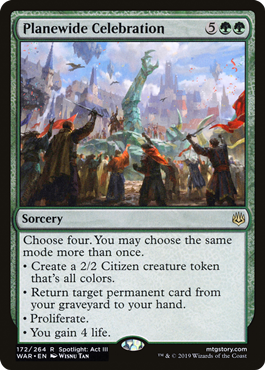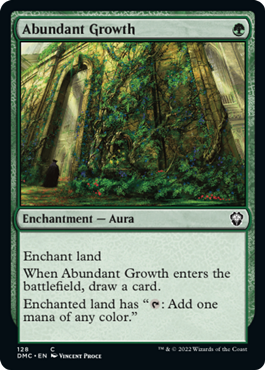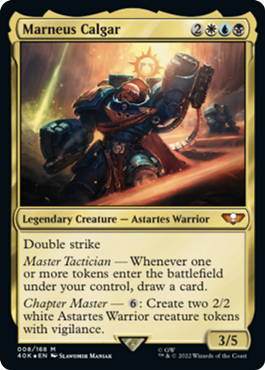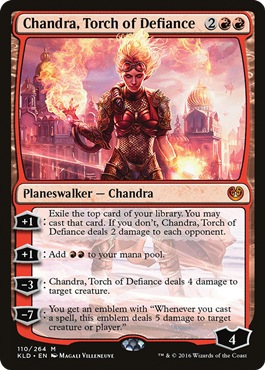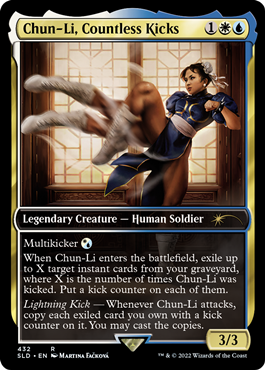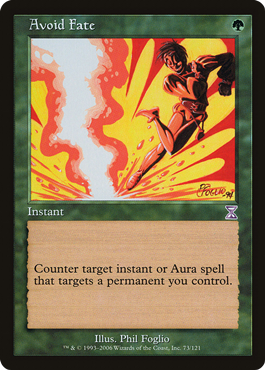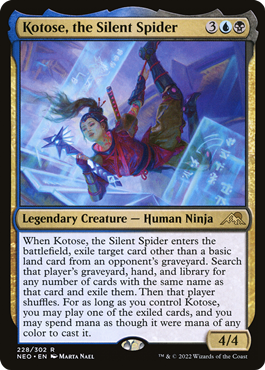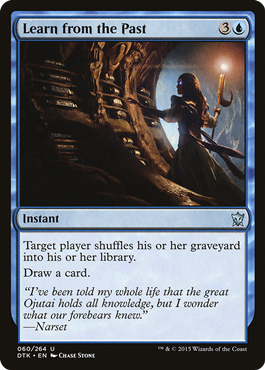Magic: the Gathering is a different game than it was 30 years ago. When it first released, no one could have predicted just how long it would last, how popular it would become and how much change was needed to reach those points. But if Magic is hoping to reach another 30 years and beyond, it will need to keep adapting.
According to Ken Troop, vice president of the Magic franchise, the future begins in the recent past. At the “State of Tabletop Magic” panel during Magic 30, he described how separate departments at Wizards of the Coast came together to form a studio that created a more cohesive whole.
“Magic really started doing better things when we formed that group,” Troop said.
Troop added that the studio was guided by two key principles: that Magic deserved to grow and that Magic is for everyone.
“Really, we have just began to scratch the surface of what Magic can do as a game and a brand and as an experience,” Troop said. “So we started putting that into practice four years ago, it was going really well and then 2020 happened.”
As the Covid-19 pandemic swept across the world, Troop said many questions came up about what would happen to Magic.
“But it turns out that the two things Magic does better than any other experience I have ever played is it creates joy and it creates community,” Troop said. “And [those were] the two things I think the world most needed.”
Instead of taking a hit during the pandemic, Magic is at its biggest and best today, in 2022. Now, Troop said he is forecasting another growth spurt.
Embracing the Audience
That growth spurt will be fueled by what Wizards of the Coast has learned during the past five years, particularly thanks to focusing on digital play through Magic: The Gathering Arena. While part of playing digitally taught Wizards about the medium’s potential, it also helped illuminate where tabletop play excelled.
Troop said these lessons resulted in a deeper commitment to Commander, or the recognition that new card treatments and products could delight players. And while this has created a lot for dedicated players to keep up with, Troop stressed that players shouldn’t feel like they need to stay on top of everything.
“Not every treatment or not every card is meant for all audiences,” Troop said. “That would be really hard and really unsatisfying. But rather, by coming up with a wide variety of things, I as a player can say, ‘oh, that’s what I want.’”
Much of these findings are driven by an increased effort to gather data on the Magic player base, Troop said. And doing so helped them avoid the “easy traps” Wizards could have fallen into when thinking about their audience. The first trap is assuming Wizards itself is “the audience,” while the other is assuming the part of the community they can most easily hear is “the audience.”
“As we really pushed ourselves to do a lot more work, a lot more data gathering, we found that wasn’t really true,” Troop said. “Look — the world of Magic and Magic’s audience is far more diverse, and weird, and expansive, and awesome than anything you get from a single facet.”
Players have already seen the first results of that data in cards, like those found in the Warhammer 40k Commander decks, and in the promise of future sets, like Lord of the Rings: Tales of Middle-Earth. Both are part of Magic’s Universes Beyond product line, which began by printing cards from The Walking Dead in 2020.
Since then, Magic has featured characters from Street Fighter to Fortnite, with future drops planned for franchises like Doctor Who and Final Fantasy. The rate of Universes Beyond drops has increased throughout the years, and players have noticed. However, while some in the community expressed frustration about non-Magic properties bleeding into the game they love, the deep-dive into Warhammer 40k seems to have proved that Universes Beyond can be a great addition to the game.
“I think we’re probably at a point now where Universes Beyond is pretty controversial, but I think a lot of people are being brought into the game because of it,” Richard Cao, the creator of community website MTGGoldfish, said.
What Magic Does Best
While Wizards of the Coast has seen success by leaning on other intellectual properties, Cao said Magic needs to leverage its own world to find continued success.
“I think having strong IP matters,” Cao said. “I know Wizards is going toward Universes Beyond, but we see other games making Netflix series. Marvel isn’t just a comic book company anymore, right? It’s a toy company, it’s a movie studio, etcetera.”
In terms of other areas Cao said he thinks Wizards can better Magic, improving their digital offering could go a long way. According to Cao, Magic has always lagged behind in the digital realm, and that Arena does the barebones for monetization by moving the paper economy online. However, he also said what he hopes to see are more events like Magic 30 itself.
“I know, we’re coming out of Covid, but, you know, having this gathering, having the return to [Friday Night Magic] and [local game stores]. Hopefully that is on the block,” Cao said.
Jim Lapage, content creator for The Spike Feeders and the newest member of the Commander Rules Committee, agreed that more events like Magic 30 would be a winning formula — particularly due to the direction Magic is moving in.
In the past, Lapage said Magic was hyper-focused around tournament play and being good at the game itself. But now, according to Lapage, engaging entertainers are the people who draw players into the game and to conventions like Magic 30. He also pointed out that this direction parallels what we’re seeing in Magic through products like Universes Beyond.
“I think it’s designed not necessarily to appeal to peoples’ mechanical ability to max the game, “Lapage said. “They’re designed to get people excited about playing — and I think that that is like a thread that runs through everything.”
Another way Lapage said Wizards could tap into that enthusiasm is by supporting more unofficial formats, like they have with Commander and Pauper.
“I would love to see other casual formats thrive as well, and I think the one that is really big may not exist yet,” Lapage said. “But I would love to see them take a chance on something.”
Avoiding Issues
Wizards of the Coast has managed Magic well enough to keep the game thriving for 30 years, but nobody is perfect. The company has faced and overcome problems in the past, and it will need to continue doing so in the future. As for what Lapage said Wizards should be cognizant of, maintaining the health of Magic’s many formats is key.
“I do think that, at least from a Commander perspective, it’s important to Commander for the other formats to be healthy, because we don’t want Commander to be the only way to play Magic,” Lapage said. “I don’t know if it’s still trending in that direction, but it has been for quite a while, and I don’t think that that’s a positive thing.”
Otherwise, Lapage said Wizards needs to be careful of printing over-tuned or antisocial cards. Since Commander is an Eternal format and cards never rotate, problematic cards require intervention from the Rules Committee. If there’s no stability in Commander because new cards are too powerful, new players have a hard time pulling out old decks from years ago.
“I know a lot of the ways people enter Commander is they start by playing Standard,” Lapage said. “And then their favorite deck rotates and now Standard doesn’t appeal to them anymore. I feel like they just want to play these cards and build a Commander deck.”
Fortunately, at least one person at Wizards of the Coast is cognizant of the issue. According to senior game designer Melissa DeTora, the design team has tools to avoid the kind of power creep Lapage mentioned.
“We try to keep Limited formats, for example, consistent set to set,” DeTora said. “We’re comparing our limited formats while working on two other limited formats and making sure that we’re not creeping on it too much, if at all. Because, like, that is one way that games can get out of hand.”
DeTora contrasted Magic with her time spent working on a different trading card game, Duel Masters, where power creep was used to make new sets relevant. Then, they fix the problems by banning cards, which DeTora said Wizards does not want to do.
The other issue on DeTora’s radar is complexity creep, which she said can push new players out of the game. This is especially important in Commander, which she said she believes is the most complex format. However, despite concerns about complexity, Wizards found players enjoy the modern cards — despite the abundance of text.
“As you may have seen the sets like Kamigawa [Neon Dynasty], we got a lot of complaints, especially from the most enfranchised players,” DeTora said. “‘Hey, this set is too wordy, I don’t have time to read all this.’ But Kamigawa was a very popular set and the Limited format is very well loved, even though the commons have a lot of words on them.”
By comparison, DeTora said sets like Strixhaven took complexity too far. Instead of just having a paragraph of rules on one side, there was often equally as much to read on the back. As a result, she said the gameplay wasn’t as fun.
Wizards of the Coast will have to find the balance eventually, though, since DeTora said many Universes Beyond cards will need to be inherently complex. Nailing the flavor of the IP they’re working with and telling a character’s story properly requires going a bit deeper with rules text.
Listening and learning
Designers like DeTora have another resource they can rely on when trying to make Magic the best game it can be: the players themselves. DeTora stressed the importance of community feedback and said she personally reads Reddit posts daily to keep her finger on players’ pulse.
“I’m always paying attention to what the community is doing,” DeTora said. “It’s very important to us.”
With that in mind, Lapage did have some feedback on future events like Magic 30. As Wizards of the Coast moves away from player prowess and toward simply getting them excited about Magic, he said the company should lean more on content creators, personalities and celebrities as draws for these types of conventions.
“I’ve gotta fly halfway across the continent. I’m not getting excited for a room full of tables,” Lapage said. “What I am getting excited for is stuff that I can’t get at home.”
The Unfinity panel with head designer of Magic, Mark Rosewater was a good example, Lapage said. Another is the opportunity to draft fantasy author Brandon Sanderson’s cube at the upcoming Magic Summit.
“I’m not a cube player, but I imagine if you were, that’s wild, right? That is a legendary kind of event,” Lapage said. “I would like to see them sell more experiences like that and less merchant tables.”
And as a final suggestion, Lapage encouraged Wizards of the Coast not to forget that Magic is a global game. While he expressed interest in more Canadian events, he also said countries like Brazil and Germany have large communities interested in Magic that deserve the chance to attend events in their own backyard.
End step
Magic is a complex, ever expanding game with a lot planned for the future. From new products to more events and a revitalized competitive circuit, Wizards of the Coast is doing a lot to provide something for everyone. And as long as the company keeps the community in mind along the way, the future of Magic is looking bright.

Jason Krell is the content manager at Card Kingdom, meaning he helps make all of this possible. He is also an unabashed Esper control player, and he hopes the two things at least cancel each other out. He loves when everyone gets to do their thing in a game of Commander and spends way too much thinking about game design. Jason also comes from an esports journalism background, which probably explains a lot about his work.

